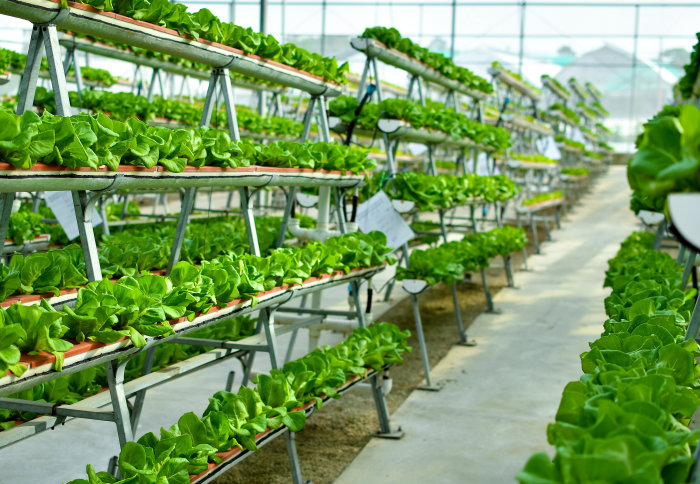Growing plants without soil amongst frontier projects backed by President’s fund

Three projects that push the boundaries of science have received funds from the President’s Excellence Fund for Frontier Research.
The projects, which aim to grow plants without soil, teach computers to check mathematical proofs, and use nanoparticles for cancer detection, will each receive £250,000 for three years.
The awards are designed to support research ideas that are potential breakthrough programs as part of the College's strategic aim of acting courageously.
Professor Nick Jennings, Vice Provost (Research) said: “This scheme is an important way for the College to support ground-breaking frontier science. These projects have the potential to make significant global impact and it is vital that the College continues to be brave through funding innovative research that will benefit society as a whole.
“I am always delighted to see the success of previous recipients of this scheme, and I can see that this year will be no exception. Through taking risks on these novel projects, Imperial will continue to achieve excellence in pioneering research.”
Growing plants without soil
As the global population increases and climate change threatens traditional farming methods, sustainable food production becomes more crucial, reducing our dependence on natural soil and large open fields.
Several solutions have been proposed, such as hydroponics (cultivating plants in water and fluids), vertical farming, and even cultivating crops on orbital stations or on ships during interplanetary missions. However, all face technical challenges, particularly in how the plants interact with their environment.

A team led by Dr Giovanni Sena (Life Sciences) along with Dr Conor Myant (Design Engineering), Dr Gunnar Pruessner (Mathematics) and Professor Chris Braddock (Chemistry) will develop new 3D-printed materials that interact with plants and especially their roots.
Plant roots naturally seek out water and nutrients, and grow according to gravity. The new materials would be embedded with water and nutrients and structured to allow oxygen to diffuse throughout, while promoting root growth.
Instead of the roots aligning their growth to gravity, the team also plan to make use of electrotropism – where plant roots align with external electric fields. Modules made from these materials could be used in vertical or 3D farming, and even in microgravity environments.
Computers take on modern maths
For thousands of years, mathematicians have been discovering theorems and working out their proofs. Classical theorems like Pythagoras' theorem have quite short proofs, but modern mathematical theorems have proofs which, when written out in full, can be thousands of pages long, and checking these proofs carefully can become a problem.
Computer scientists are developing computer programs that can help check human proofs, and these are at the stage where mathematicians could start to use them for checking and finding new proofs. First, however, the computer programs need to be taught modern mathematics, and human mathematicians need to be taught how to use the software.
Professor Kevin Buzzard (Mathematics) will run a workshop focussed on teaching undergraduates how to use one of these new systems, and will fund a post-doctoral researcher who will train a computer to understand the ideas behind some of the research being done in the mathematics department at Imperial.
Tumour imaging with nanoprobes
Dr Fang Xie’s team in the Department of Materials will develop nanoprobes to image deep tissue cancerous tumours and help surgeons remove these tumours during surgery. The researchers hope their nanoprobes will allow surgeons to image tumours with unprecedented penetration and unrivalled brightness.
 Dr Xie said: “High precision, real-time imaging for surgical guidance could have a major impact in the millions of new cancer cases diagnosed annually and specifically in tumour removal surgery, where 40% of patients show evidence of residual tumours.
Dr Xie said: “High precision, real-time imaging for surgical guidance could have a major impact in the millions of new cancer cases diagnosed annually and specifically in tumour removal surgery, where 40% of patients show evidence of residual tumours.
“Our nanoparticles could provide bright, clear, high-resolution images of cancer tumours. This could revolutionise the field of bioimaging and how it is used in precision tumour surgery. The combined micrometre resolution and high penetration depth achieved by engineering these nanomaterial probes will enhance clinical treatment and could affect the prognosis of cancer patients.”
The multidisciplinary team includes materials scientists, physicists, oncologists and cancer surgeons.
Article text (excluding photos or graphics) © Imperial College London.
Photos and graphics subject to third party copyright used with permission or © Imperial College London.
Reporter
Hayley Dunning
Communications Division
Caroline Brogan
Communications Division